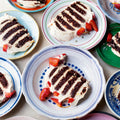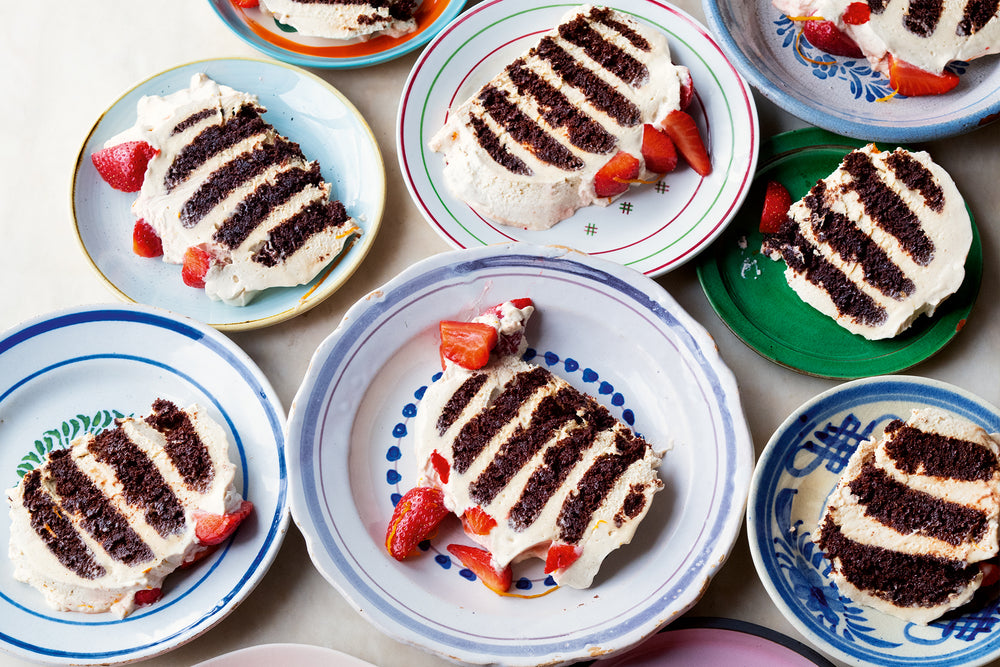Popular searches
Main menu
recipes menu
recipes
locations menu
locations
shop menu
shop
search
Popular searches
As anyone who’s ever been to an Australian barbecue will know, chocolate ripple cake is a ubiquitous, no-bake dessert. In Australia, it’s made with shop-bought chocolate biscuits which are then sandwiched together with cream. The recipe is so simple that it’s printed on the back of the biscuit packet! On a recent family trip back to Melbourne, Helen’s kids were so taken by the cake that they begged her to make it back in London. Not being able to get hold of the right biscuits – Arnott’s Choc Ripple (though they are now available online) – Helen made them from scratch. They’re so quick and simple to bake that Helen now not only bakes them to make the cake but, also, makes extra biscuits to have around. No birthday party (or barbecue!) is complete without them.
Getting ahead: The biscuits can be made and baked up to 7 days in advance, kept in an airtight container. The cake needs to be made up to 6 hours before serving, to allow it to soften and meld together, but can be made up to 2 days in advance, left to sit and wait in the fridge.
| 3 tbsp | milk (or 105ml if not using the grand marnier) |
| 60ml | grand marnier (if using) |
| 1 | espresso shot, regular or decaf (30ml) |
| 650ml | double cream |
| 325g | crème fraîche |
| 50g | icing sugar |
| 1½ tsp | vanilla extract |
| 1½ tsp | ground cinnamon |
| BISCUITS | |
| 225g | plain flour |
| 50g | cocoa powder |
| ¾ tsp | baking powder |
| ½ tsp | bicarbonate of soda |
| ¼ tsp | salt |
| 100g | unsalted butter, at room temperature |
| 200g | caster sugar |
| 50ml | vegetable oil |
| 50g | golden syrup |
| 1 | egg |
| MACERATED STRAWBERRIES | |
| 600g | strawberries, hulled and quartered |
| 1½ tbsp | caster sugar |
| 1 tsp | finely shaved orange zest 2 tbsp Grand Marnier (or orange juice) |
| 2 | strips of orange zest, julienned |


Tag @ottolenghi on Instagram and hashtag it #ottolenghi so we can see all the deliciousness!
Follow @Ottolenghi on Instagram and tag your images with #Ottolenghicookoftheweek
Be the first to add a cooking note